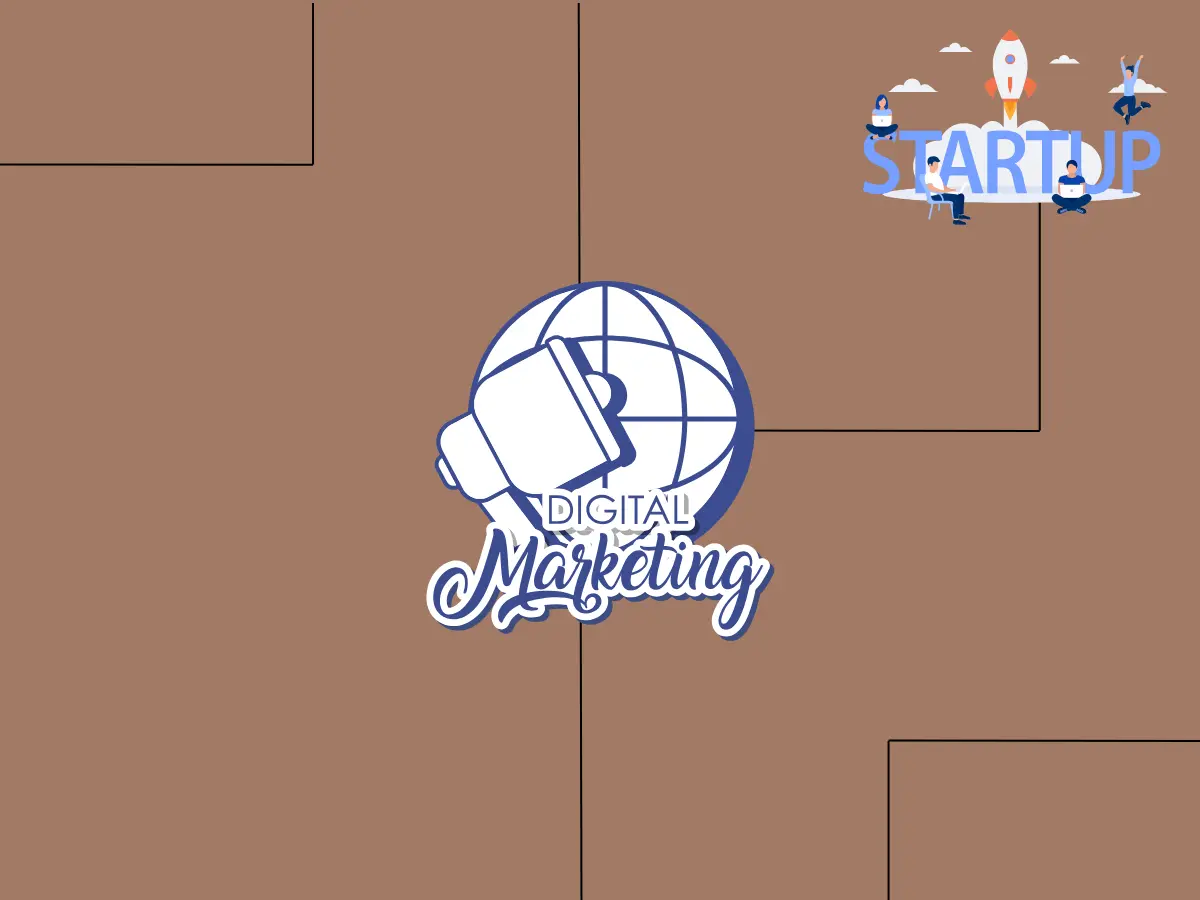Digital marketing for startups isn’t just a trend, it’s a savvy strategy to launch your business successfully. Starting can be challenging as you work to establish your brand, attract customers, and differentiate yourself from larger competitors. That’s precisely where digital marketing comes in.
When executed effectively, digital marketing for startups equips you with the essential tools to connect with your target audience, share your narrative, and expand your business, all without the necessity of a hefty budget. From social media to email campaigns, content marketing to SEO, digital strategies empower you to engage with your audience, build trust, and achieve impactful results.
In this article, we’ll explore the inner workings of digital marketing for startups and how you can use it to your benefit. Learn the straightforward and effective strategies designed to help you navigate the clutter and begin expanding your business in the digital landscape.
What is Digital Marketing?
Digital marketing is the process of promoting goods and services through online tools, platforms, and methods. Unlike traditional marketing, digital marketing uses the internet to reach a larger audience and interact with potential clients in real time.
Importance of Digital Marketing for Startups
Back in the day, starting a new business meant relying heavily on word of mouth or old-school methods like handing out flyers and putting up billboards. If you had a big budget, maybe you’d even shoot a TV commercial. Those strategies still have their place, but let’s be real, the internet has completely flipped the script, especially for startups.
Now, the playing field is more level than ever. You can launch your business and your entire digital marketing campaign right from your living room. Getting your brand in front of the right people has never been more accessible.
The good part is that you don’t have to do it all yourself. These days, you can partner with experienced digital marketing agencies that know exactly how to help startups grow. The right strategy can fast-track your success, saving you both time and money.
Overview of Current Digital Marketing Trends for Startups in 2026
A startup business, by definition, has different goals and resources than a large international corporation. Even though the tools may be the same, companies should use different digital marketing strategies.

Savvy startups understand that having a solid digital marketing strategy isn’t optional; it’s essential. And one of the smartest ways to get it right from the start is by partnering with a full-service digital marketing agency. These digital marketing teams frequently have decades of experience launching new brands and provide services beyond content creation.
Apart from helping you make your brand visible, they can also help you figure out what to do next and manage your social media plan. At the beginning of your business, help like that is very helpful.
Read more about eCommerce Marketing Strategies
Best Digital Marketing Strategies for Startups
Here are the following digital marketing strategies that you can follow for your startup:
1. Understanding Your Target Audience
Before you dive into digital marketing channels for startups, it’s important to truly understand who you’re trying to reach. For startups, this means understanding your target audience and building detailed buyer personas that reflect your ideal customers. When you know exactly who you’re talking to, it becomes much easier to create marketing that actually connects and converts.
So, let’s break down how you can really get to know your audience.

a. Defining your target audience and creating buyer personas
Start by looking into the basics, like your potential customers’ age, location, interests, habits, and the problems they’re trying to solve. This kind of insight comes from solid market research and looking into any data you already have.
Once you’ve gathered all this info, you can start building buyer personas, which are detailed profiles that represent your ideal customers. Think of them as characters that help you picture who you’re talking to, so your messaging feels more personal and relevant.
If you need help getting it right? It is advisable to work with a digital marketing company that understands that startups can be a game-changer. These digital marketing companies bring the experience and research tools to help you define your audience with confidence and create personas that actually guide your strategy.
b. Conducting market research to identify customer pain points and needs
If you want your startup to grow, you’ve got to know what your audience is struggling with and what they actually want. That’s where market research comes in. Whether it’s through surveys, interviews, or analyzing online behavior, this real feedbacks give you a clearer picture of your customers’ pain points and how your product or service can help solve them.
You don’t have to do it all on your own, either. Digital marketing agencies that specialize in startups can help you dig into the data, uncover trends, and understand your competitors. They bring experience and tools to the table, making it easier to make smart, data-driven marketing decisions.
c. Use customer segmentation to speak your audience’s language
Once you understand your audience, the next step is breaking them down into smaller groups, which is called customer segmentation. It means grouping people based on shared traits like interests, buying behavior, or demographics so that you can tailor your message to what matters most to each group.
This kind of personalized marketing isn’t just about engaging, it’s about building stronger relationships with your audience. When people feel like you’re talking directly to them, they’re more likely to trust you and take action. With the right digital marketing agency by your side, you’ll have expert support to refine your targeting, shape your strategy, and connect with your ideal customers in a way that really works.
2. Building a Strong Online Presence
The next step in digital marketing for startups is to build a strong online presence. Startups need to have a strong online presence in order to get the attention of their target audience and stand out from the competition in the digital world. Having a strong online profile requires several important steps. Let’s look into them:
a. Developing a compelling brand identity and unique value proposition
In today’s noisy digital world, your startup needs more than just a logo; you need a brand that genuinely connects with people. Start by getting clear on what your brand stands for: your mission, your values, and the personality you want to express.
Also, it’s important to figure out your unique value proposition (UVP), which is what makes your company different from others in the market.
Working with digital marketing companies for startups can help you improve your brand identity and unique selling proposition (USP), making sure they fit the wants and needs of your target audience.
Techdella’s branding services can help crystallize your brand identity and UVP to resonate deeply with your target market.
b. Building a Website That Works for You
Think of your website as your digital storefront; it’s often the first real impression people get of your brand. That’s why it needs to be fast, easy to navigate, and look great on any device. A user-friendly, well-optimized site should combine smart design, clear content, and strong visuals that all lead visitors to take action. Whether that’s signing up, booking a call, or making a purchase, your site should make it easy. Teaming up with digital marketing experts for startups can help ensure your website isn’t just pretty; it performs.
Read more about The Ultimate Guide to Building Your First Startup Website
c. Use content marketing to build trust and connect with your audience
Content marketing is one of the most effective ways to build brand awareness and earn your audience’s trust. When you consistently share valuable content, like blog posts, videos, podcasts, or infographics, you’re not just promoting your startup; you’re showing people that you understand their needs and can help solve their problems.
The key point is to speak directly to your audience’s interests and pain points. Share what you know, offer real insights, and share your expertise.
If you’re not sure where to start, digital marketing agencies that work with startups can help you craft a smart content strategy, create engaging content, and get it in front of the right people.
d. Make SEO your secret weapon for getting found online
Search engine optimization (SEO) is essential if you want people to find your startup without paid ads. It starts with understanding what your audience is searching for, then using those keywords naturally in your website copy, blog posts, and page titles. But it’s more than just keywords. Fast-loading pages, mobile-friendly design, and quality backlinks all help your site climb the rankings.
If SEO feels overwhelming, don’t worry, partnering with a digital marketing agency that knows how to support startups can give you the expert boost you need to show up where it matters most, which is on the first page of search results.
You need to understand that building a strong online presence doesn’t happen overnight, it takes consistent effort and smart planning. From creating a brand that really connects with people to fine-tuning your website, using content to tell your story, and making the most of SEO, each step plays a big role. When done right, these pieces come together to give your startup a solid launchpad for lasting success online.
3. Social Media Marketing
Another step in digital marketing for startups is social media marketing. Social media has completely changed how startups connect with people, it’s no longer just about posting updates, it’s about building real relationships. When used right, platforms like Instagram, X (formerly Twitter), LinkedIn, and TikTok can help you reach the right audience, grow your brand, and drive meaningful engagement.
So, how do you make it work for your startup? Let’s break down some simple but effective strategies to get the most out of your social media marketing:

a. Pick the right social media platforms for your audience
When it comes to digital marketing for startups, choosing the right social media platforms is important. Not every platform is built for your type of audience, and that’s totally fine. The right thing to do is to focus your energy where your target audience actually spends their time. Are they networking on LinkedIn, sharing insights on Twitter, or more active elsewhere? For example, if you’re targeting young professionals, LinkedIn or Twitter might be a better fit than TikTok or Snapchat.
The point is to meet your audience where they already are, don’t waste time trying to force engagement on the wrong platform. Start with one or two channels, learn what works, and build from there. That way, you’re not just posting, you’re connecting with the right people in the right places.
b. Build a social media content strategy and calendar
An important piece of digital marketing for startups is having a strong content strategy that keeps your audience engaged and your messaging consistent. Once you’ve nailed down your platforms, it’s time to plan out what you’re going to share. Think about the content that connects with your audience, whether it’s tips, behind-the-scenes stories, or inspirational posts. Then, create a simple content calendar to organize your posting schedule, themes, and key moments.
c. Implementing effective tactics to increase followers and engagement
In digital marketing for startups, growing your social media following takes more than just posting regularly. Get people involved by asking questions, running polls or contests, and replying to comments and messages. It shows you’re active and care about your community.
Collaborating with influencers can also expand your reach and build trust. Many digital marketing services for startups include
- Influencer strategies to help you connect with the right voices.
- Reaching More People with Social Ads
- Organic growth is great, but social media ads can take your reach even further.
Platforms like Facebook and LinkedIn let you target specific audiences with precision. Just make sure your ads are visually strong and clearly communicate your message.
Social media is a powerful part of digital marketing for startups. With the right platforms, engaging content, and smart ad strategies, you can help connect with your audience, build loyalty, and drive real growth.
4. Pay-Per-Click (PPC) Advertising
Pay-Per-Click (PPC) advertising is one of the most effective ways to get your brand in front of the right audience fast. It allows you to drive highly targeted traffic to your website, measure performance easily, and see real results without waiting for months. But to get the most out of PPC, you need to understand how it works and how to use it strategically. Let’s break it down.
a. Understanding the fundamentals of PPC advertising
At its core, PPC is about bidding on keywords related to your business and paying each time someone clicks your ad. Simple, right? Platforms like Google Ads and Microsoft Advertising make this possible. Start by setting clear goals, whether it’s more site visits, lead generation, or boosting sales. Knowing what you want to achieve will help guide everything else.
b. Conducting keyword research and optimizing ad campaigns
A great PPC campaign starts with smart keyword research. Think like your customer—what would they type into Google to find a business like yours? Use tools like Google Keyword Planner, SemRush, or Ubersuggest to uncover high-value keywords with a good balance of search volume and competition. Once you have solid lists, organize them into focused ad groups and use them to craft relevant, targeted ads.
c. Creating compelling ad copy and landing pages for maximum conversions
Your ad copy is your first impression, so make it count. Focus on what makes your startup unique, and speak directly to your audience’s needs. Also, clear calls-to-action (CTAs), benefits, and even a bit of personality can go a long way. But don’t stop at the ad. Your landing page should match the message in your ad and make it easy for visitors to take the next step, whether that’s signing up, buying, or learning more.
d. Monitoring and optimizing PPC campaigns to improve ROI
PPC isn’t a “set it and forget it” strategy. To make the most of your investment, you need to keep an eye on performance metrics like click-through rate (CTR), conversion rate, and cost per conversion. If something’s not working, maybe a keyword is too expensive or an ad just isn’t converting, adjust it. Test new ideas (A/B testing is your friend) and keep refining your strategy based on what the data is telling you.
Bottom line? PPC can be a powerful tool in your digital marketing toolkit. And by the end of this section, you should have a clearer picture of whether it’s the right move for your startup or if another strategy might serve you better.
5. Email Marketing and Lead Generation
Email marketing is a powerful tool for digital marketing for startups. This helps build relationships with your audience, generate leads, and drive conversions. By effectively utilizing email marketing strategies and lead generation tactics, you can nurture prospects and turn them into loyal customers. Let’s explore the key elements of successful email marketing and lead generation:
a. Grow Your Email List with Lead Magnets
Start by attracting people who genuinely want to hear from you. Offer something valuable, like a free guide, discount code, or exclusive content, in exchange for their email address. These are called lead magnets, and they work best when they solve a real problem your audience has.
Be sure to add sign-up forms to key spots on your website and consider using pop-ups or exit-intent offers to catch visitors before they leave. If you’re not sure where to start, reach out to us at Techdella, and we will help you come up with creative and effective lead magnet ideas tailored to your audience.
b. Crafting engaging and personalized email campaigns
Once you’ve built your list, don’t just send generic blasts. Personalize your emails, use people’s names, tailor content to their interests, and segment your audience based on behavior or preferences. This makes your messages feel relevant, not spammy. Great subject lines, eye-catching visuals, and clear, helpful content are important. Try mixing it up with newsletters, product tips, exclusive offers, or customer stories to keep things fresh and engaging.
c. Implementing marketing automation to nurture leads and drive conversions
Email automation can be the step for startups juggling a million things. With the right tools, you can set up automated sequences that send the right message at the right time, like a welcome email for new subscribers or a follow-up after someone checks out a product.
These workflows save time and help nurture leads without needing constant hands-on effort. Plus, many platforms let you track engagement and score leads so you can focus on the relevant prospects.
d. Analyzing email campaign metrics and refining strategies for better results
To make the most of your email marketing, it’s important to monitor key metrics like open rates, click-through rates, and conversions. These numbers tell you what’s working and what needs a tweak. Look for patterns and insights that can help you fine-tune your strategy over time. Don’t be afraid to run A/B tests on things like subject lines, calls-to-action, or even the layout of your emails, small changes can make a big difference.
You can use built-in analytics tools from your email platform, or even team up with a digital marketing startup to get deeper insights and smarter strategies. When you combine a solid email list, irresistible lead magnets, engaging content, smart automation, and consistent performance tracking, email marketing becomes a powerful tool to help your startup attract leads and boost conversions.
Read more about Email Segmentation and How Your Business Can Benefit From It
6. Influencer Marketing and Partnerships
In today’s digital world, people trust people more than ads, and that’s where influencer marketing comes in. It’s become a go-to market strategy for startups that want to grow their brand, reach new audiences, and spark genuine engagement. By teaming up with the right influencers and forming smart business partnerships, you can tap into new markets and build real credibility. Here’s how to make it work:

a. Find the right influencers and potential partners
Start by looking for influencers who already speak to the kind of audience you’re trying to reach. Platforms like Instagram, TikTok, and YouTube are great places to start. Focus on more than just follower counts, check their engagement, tone, and how well their content aligns with your brand.
It’s not just about influencers, though. Think about potential business allies too—complementary brands, local communities, or industry groups that share your goals and audience.
Read more about the types of influencer marketing
b. Developing mutually beneficial collaborations and partnerships
When you reach out, make sure it’s not all about what you want. Show influencers and partners what’s in it for them. Whether it’s free products, exclusive access, or a revenue share, offer something meaningful. And don’t just think short-term, aim to build relationships based on mutual respect and shared values.
c. Leveraging influencer marketing campaigns to expand brand reach
Work together to create content that feels natural and true to the influencer’s voice. That could mean product reviews, how-to videos, behind-the-scenes content, or even an influencer takeover on your socials. The key is authenticity, let them present your brand in a way that speaks to their audience while still reaching your goals.
d. Measuring the impact and ROI of influencer marketing efforts
You can’t improve what you don’t measure. Set clear goals, like website visits, sales, or social engagement, and use tools like tracking links, discount codes, or custom landing pages to see what’s working. Pay attention to the data, learn from it, and tweak your strategy for better results next time.
When done right, influencer marketing and strategic partnerships can give your startup a serious boost. By finding the right people to collaborate with, creating content that resonates, and measuring the results, you’ll be well on your way to building a stronger, more visible brand.
7. Analytics and Data-Driven Marketing
Finally, rounding out our list of digital marketing for startups is analytics and data-driven marketing. Data isn’t just a bunch of numbers, it’s one of the most powerful tools your startup can use to make smarter decisions, improve results, and grow with confidence. When used right, it can guide smarter marketing decisions and help you constantly refine your strategy. The beauty of data-driven marketing is that it helps you understand what’s actually working, so you can do more of that and less of what’s not.
Let’s break down the key elements of using analytics to grow your startup the smart way:
a. Start with the Right Tools
To begin, you’ll need to set up tools like Google Analytics, Adobe Analytics, or similar platforms. These tools track how people interact with your website, things like where your traffic is coming from, how users behave once they land on your site, and what actions they take (like making a purchase or signing up for a newsletter). Ensure your tracking setup aligns with your marketing goals to collect meaningful and accurate data.
b. Analyzing data to gain insights into audience behavior and campaign effectiveness
Once your tools are up and running, make it a habit to review your analytics regularly. Look at metrics like bounce rate, average time on site, conversion rates, and traffic sources. These numbers tell a story, how visitors are engaging with your site, what’s catching their attention, and where they might be dropping off. You can also dig into demographic data and user flow to uncover more about who your audience is and how they move through your content.
c. Making data-driven decisions to optimize marketing strategies:
The real magic happens when you start using those insights to make better marketing decisions. For example, if you notice one landing page is converting better than another, figure out what it’s doing right and apply those learnings elsewhere. Or maybe your audience engages more with video than blog posts, then it might be time to invest more in video content. Use the data to guide your strategy, change your messaging, and focus your efforts where they count.
d. Test, Learn, Improve
A/B testing is your best friend here. It lets you compare different versions of your ads, emails, or web pages to see which one performs better. Maybe changing a headline or a button color boosts your sign-ups, those small changes can make a big difference. You can also use tools like Hotjar for heatmaps or user recordings to see how people are actually navigating your site, giving you even more insight for optimization.
By setting up the right tools, paying attention to what the data tells you, and being willing to test and adjust, you give your startup a strong foundation to grow smarter, not just harder. At the end of the day, this approach helps you make confident, informed decisions and figure out whether your marketing strategy is really working for you, or if it’s time for a change.
In Conclusion
Digital marketing for startups doesn’t have to be overwhelming. The key is to focus on what actually works for your audience and goals, instead of trying to do everything at once.
Start by getting to know who you’re talking to, choosing the channels where they’re most active, and creating content that really speaks to them. From there, it’s all about testing, learning, and changing as you go. Sure, you can explore strategies like SEO, PPC, email marketing, influencer collaborations, or even account-based marketing, but at the end of the day, success comes from showing up where your audience is and giving them real value.
Are you ready to take your startup to the next level? At Techdella, we understand the hustle, and we know how to make digital marketing work for businesses like yours. Let’s team up, tap into the full power of online growth, and build something amazing together. Reach out today, and let’s make it happen.
My name is Omolola, I am a dedicated Content Writer at Techdella. I excel in simplifying complex procedures and keeping audiences informed with the latest trends. With a passion for staying updated in the fast-paced digital world, I spend considerable time online to ensure my content remains relevant and engaging.
Get it in your inbox
One email a week. Real startup marketing insights — no filler.
Join 1,400+ founders. Unsubscribe anytime.
You're in!
Thanks for subscribing. Your first issue will arrive shortly.




